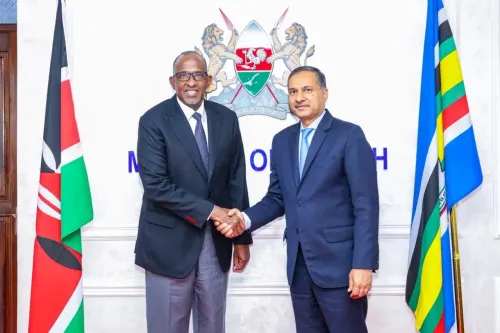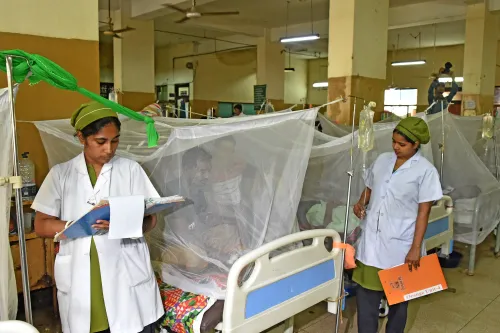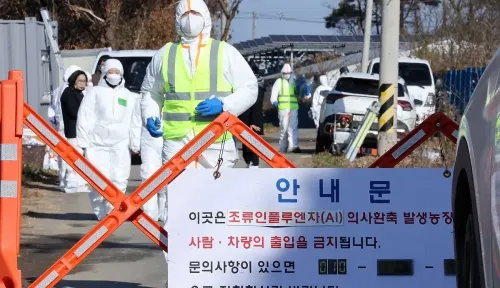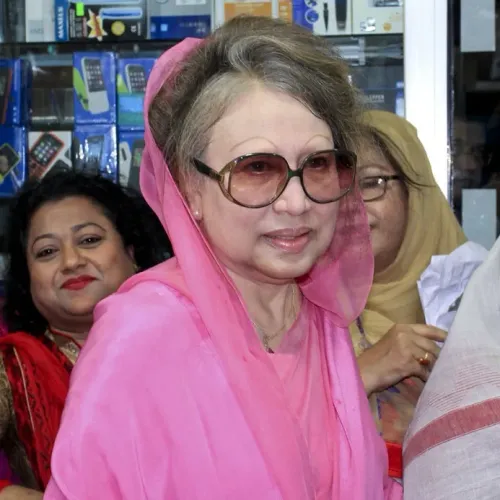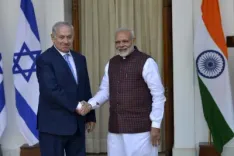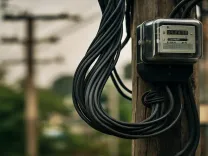Did Katihar Just Become the Third-Best in Bihar for Ayushman Cards?
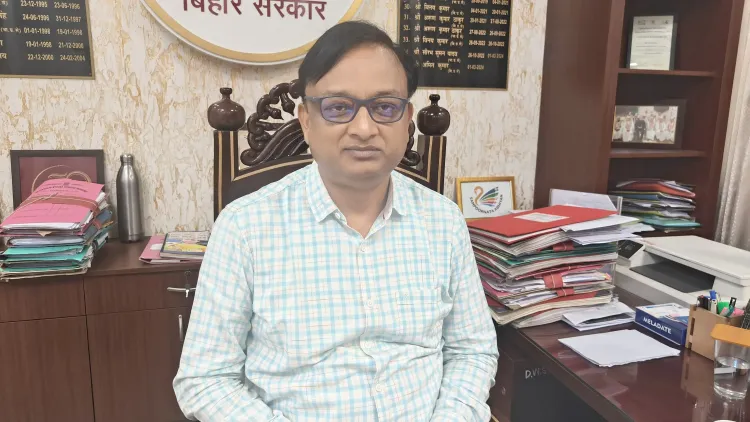
Synopsis
Key Takeaways
- Katihar ranks third in Bihar for Ayushman card generation.
- Over 80,000 cards issued to date.
- The scheme provides free health cover of Rs 5 lakhs annually.
- It aims to assist the bottom 40% of India's population.
- Jan Aushadhi Kendras have increased significantly since 2014.
Katihar, June 9 (NationPress) In a remarkable milestone under the Central government’s flagship healthcare scheme, the Ayushman Bharat Pradhan Mantri Jan Arogya Yojana (AB PM-JAY), Katihar district has achieved the third position in Bihar for the issuance of Ayushman cards. With over 80,000 cards generated to date, the district ranks among the top ten in the state, showcasing increased public participation in this initiative.
The District Magistrate Manish Kumar Meena encouraged local residents to fully leverage the benefits of the Ayushman Bharat scheme, referring to it as one of the most ambitious and influential programs of the Central government.
"This scheme allows families to access free health treatment worth up to Rs 5 lakhs per year. I urge all ration card holders to visit their local Kendras promptly to obtain their Ayushman cards," he stated.
In an interview with IANS, Deputy Development Commissioner of Katihar, Amit Kumar, provided additional details.
"We initiated the card generation campaign across Bihar on May 26, launching it at the ward level. Despite facing obstacles like heavy rain, Katihar excelled by securing the third place in the state. So far, 80,000 Ayushman cards have been generated, and we aim to increase this number in the near future."
The Ayushman Bharat PM-JAY stands as the world's largest health assurance scheme, targeting over 12 crore impoverished and vulnerable families—approximately 55 crore individuals—who represent the bottom 40% of India's population. The initiative provides an annual health cover of Rs 5 lakhs per family for secondary and tertiary hospitalization. Beneficiaries are identified using the Socio-Economic Caste Census (SECC) 2011 data from both rural and urban regions.
Launched in 2018, the AB PM-JAY integrated with the earlier Rashtriya Swasthya Bima Yojana (RSBY), which was introduced in 2008. It guarantees cashless treatment for beneficiaries at the point of service, i.e., at empaneled hospitals. The program is entirely funded by the government, with implementation costs divided between the Centre and the states.
This initiative is part of the broader Ayushman Bharat Mission, which aims to reduce out-of-pocket healthcare expenses, enhance access to quality medical services, and advance India towards Universal Health Coverage. It also encompasses the Ayushman Bharat Digital Mission, which has successfully created over 77 crore digital health IDs, connecting citizens with seamless healthcare services.
Additionally, the government has introduced the Ayushman Vay Vandana Yojana, providing benefits to all citizens aged 70 and above, irrespective of their income.
On Monday, commemorating 11 years of the Modi-led government, Union Health Minister J.P. Nadda emphasized the impact of the Ayushman Bharat initiative.
"In the past 11 years, there has been historic development across various sectors—education, health, transport, infrastructure, and defense. The Ayushman Bharat-Jan Arogya Yojana has transformed healthcare access for millions," Nadda noted in a post on the social media platform X.
As of May 30, over 41.02 crore Ayushman cards have been issued across 33 states and Union Territories. The scheme has facilitated 8.59 crore hospital admissions amounting to Rs 1,19,858 crore, providing a crucial lifeline for millions and preventing families from falling into debt due to medical expenses.
Moreover, the number of Jan Aushadhi Kendras offering affordable generic medications has skyrocketed from just 80 in 2014 to 16,469 as of May 30, significantly enhancing access to essential medicines for everyday citizens.


